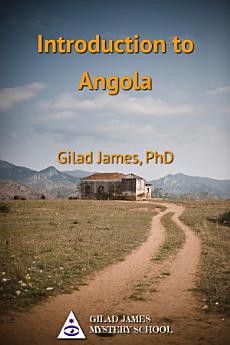Introduction to Angola
Gilad James Mystery School
ইবুক
75
পৃষ্ঠা
family_home
যোগ্য
info
reportমূল্যাংকন আৰু পৰ্যালোচনা সত্যাপন কৰা হোৱা নাই অধিক জানক
এই ইবুকখনৰ বিষয়ে
Angola, located on the west coast of Africa, is a country rich in natural resources such as oil, diamonds, and minerals. It gained independence from Portugal in 1975 after a long and bloody civil war that lasted over 27 years. Since then, Angola has made significant strides toward economic and political stability. With a population of over 32 million people, Angola is the seventh-largest country in Africa and is home to numerous ethnic groups, including the Ovimbundu, Ambundu, Bakongo, and Chokwe. Despite its vast natural resources, Angola faces numerous challenges, including high levels of poverty, unemployment, and income inequality. The country has also struggled with political corruption and a lack of transparency in its government. However, under the leadership of President João Lourenço, Angola has taken steps to combat corruption and improve its economy. The government has implemented policies to diversify its economy and attract foreign investment, and the country has seen an increase in foreign partnerships and infrastructure development. With these efforts, Angola aims to become a stable and prosperous nation in the years to come.
এই ইবুকখনক মূল্যাংকন কৰক
আমাক আপোনাৰ মতামত জনাওক।
পঢ়াৰ নির্দেশাৱলী
স্মাৰ্টফ’ন আৰু টেবলেট
Android আৰু iPad/iPhoneৰ বাবে Google Play Books এপটো ইনষ্টল কৰক। ই স্বয়ংক্রিয়ভাৱে আপোনাৰ একাউণ্টৰ সৈতে ছিংক হয় আৰু আপুনি য'তে নাথাকক ত'তেই কোনো অডিঅ'বুক অনলাইন বা অফলাইনত শুনিবলৈ সুবিধা দিয়ে।
লেপটপ আৰু কম্পিউটাৰ
আপুনি কম্পিউটাৰৰ ৱেব ব্রাউজাৰ ব্যৱহাৰ কৰি Google Playত কিনা অডিঅ'বুকসমূহ শুনিব পাৰে।
ই-ৰীডাৰ আৰু অন্য ডিভাইচ
Kobo eReadersৰ দৰে ই-চিয়াঁহীৰ ডিভাইচসমূহত পঢ়িবলৈ, আপুনি এটা ফাইল ডাউনল’ড কৰি সেইটো আপোনাৰ ডিভাইচলৈ স্থানান্তৰণ কৰিব লাগিব। সমৰ্থিত ই-ৰিডাৰলৈ ফাইলটো কেনেকৈ স্থানান্তৰ কৰিব জানিবলৈ সহায় কেন্দ্ৰত থকা সবিশেষ নিৰ্দেশাৱলী চাওক।








